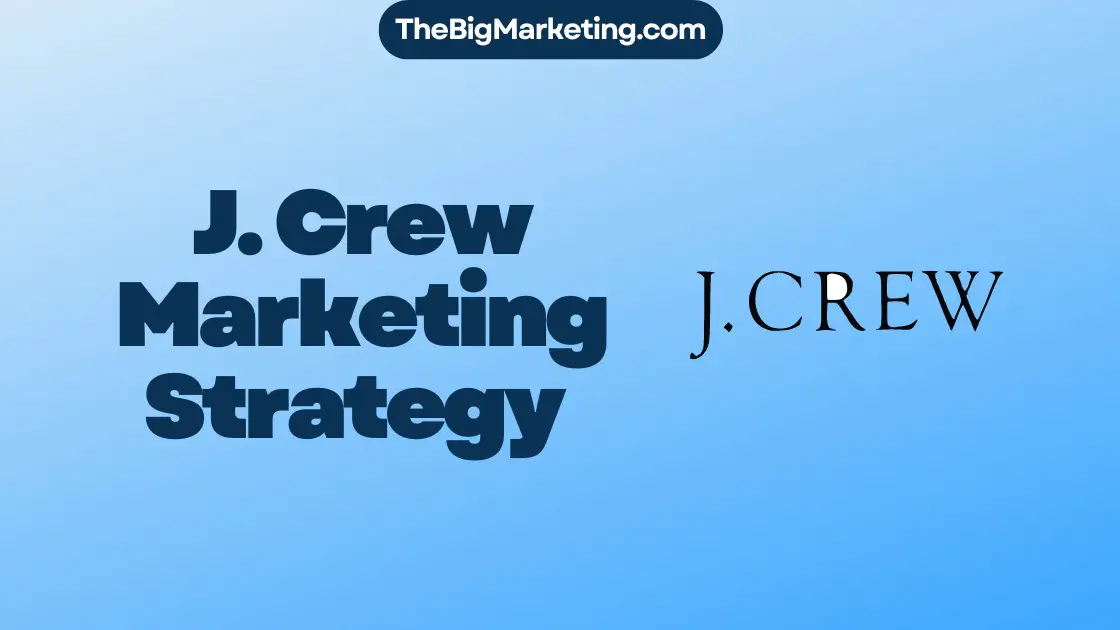Precision marketing is a data-driven approach that allows brands to precisely target their customers through personalized marketing strategies. It focuses on understanding customer behavior, preferences, and habits to deliver tailored messages and experiences. By leveraging customer data, precision marketing aims to increase marketing success and drive customer loyalty.
Precision marketing prioritizes existing customers over acquiring new ones and emphasizes customer retention, upselling, and cross-selling. By analyzing data and building relationships, brands can create an intelligent customer experience that enhances engagement and drives business growth.
Are you curious to learn more about precision marketing? In this article, we will explore the definition, strategies, benefits, and techniques associated with precision marketing. Let’s dive in!
Key Takeaways
- Precision marketing utilizes data and relationship-building to precisely target a brand’s customers.
- It focuses on existing customers, customer retention, upselling, and cross-selling.
- Precision marketing aims to increase marketing success and provide a more intelligent customer experience.
- By analyzing shopper habits and behaviors, precision marketing enhances engagement and drives business growth.
- Stay tuned to learn more about precision marketing strategies, benefits, and techniques.
The Importance of Precision Marketing
Precision marketing plays a crucial role in today’s dynamic business landscape. With marketing becoming increasingly complex, businesses need to adapt and be agile in response to real-time customer feedback. This means understanding customer preferences and communication styles at a deeper level.
In addition, customers have high expectations when it comes to their interactions with brands. They expect a seamless and frictionless user experience, personalized interactions, and relevant offers. In order to meet these expectations, businesses must employ precision marketing techniques to tailor their marketing strategies to individual customers.
Furthermore, precision marketing recognizes that connections matter. It’s not just about acquiring new customers; it’s about nurturing and retaining existing customers. Strong connections with customers build trust, loyalty, and long-lasting relationships.
By understanding customer psychology and utilizing data-driven insights, businesses can develop tailored marketing strategies that resonate with their target audience. Whether it’s delivering personalized product recommendations or creating targeted campaigns, precision marketing enables businesses to connect with customers on a deeper level, driving engagement and ultimately boosting conversions.
With the importance of precision marketing in mind, let’s explore some tips for implementing an effective precision marketing strategy.
Tips for an Effective Precision Marketing Strategy
Implementing a successful precision marketing strategy requires several key components. By following these tips, you can engage with your customers, have a strong online presence, offer real value to repeat customers, be authentic, and create a desirable customer experience.
Engage with Your Customers
Building genuine relationships with your customers is crucial for precision marketing. Take the time to understand their needs, preferences, and pain points. Engage with them through various channels, such as social media, email marketing, or personalized messaging. By actively listening and responding to your customers, you can establish trust and loyalty.
Have a Strong Online Presence
In today’s digital landscape, having a strong online presence is essential. Create a user-friendly website that showcases your products or services and provides valuable content. Utilize search engine optimization (SEO) techniques to improve your website’s visibility in search engine results. Additionally, establish a presence on social media platforms relevant to your target audience to increase brand awareness and engage with customers directly.
Offer Real Value to Repeat Customers
Repeat customers are the lifeblood of any business. To keep them coming back, offer personalized content, exclusive discounts, and rewards programs. Show them that their loyalty is appreciated and that you value their business. By providing real value and tailoring your offerings to their specific needs, you can foster long-term customer loyalty.
Be Authentic
In a sea of impersonal marketing messages, authenticity stands out. Be true to your brand values and voice. Build trust by being transparent and honest with your customers. Incorporate your brand’s story into your marketing communications to create an emotional connection. Genuine authenticity resonates with customers and encourages them to engage with your brand on a deeper level.
Create a Desirable Customer Experience
Your customers expect a seamless and enjoyable experience when interacting with your brand. Make it easy for them to navigate your website, find information, and make purchases. Personalize their experience by offering relevant product recommendations or tailored content. Streamline your checkout process to minimize friction and maximize satisfaction. By creating a desirable customer experience, you can leave a lasting impression and foster customer loyalty.
Implementing an effective precision marketing strategy involves engaging with customers, having a strong online presence, offering real value to repeat customers, being authentic, and creating a desirable customer experience. By following these tips, you can optimize your marketing efforts and drive meaningful connections with your target audience.
Keys for Success in Brand Loyalty
Building brand loyalty is essential for businesses to retain customers and drive long-term success. By implementing key strategies, companies can maintain a strong brand, understand their audience’s habits, stick to their goals, make retention a priority, and stay on top of trends.
Maintain a Strong Brand
A strong brand is the foundation of customer loyalty. It establishes trust, credibility, and recognition in the market. Consistency in branding, from logo design to messaging, helps create a cohesive and memorable brand identity. Companies should focus on delivering high-quality products or services and upholding their brand values to maintain a strong brand presence.
Understand Your Audience’s Habits
Understanding your audience’s habits and preferences is crucial for building brand loyalty. Conduct market segmentation to identify different customer segments and their behaviors. Analyze data on customer interactions, purchase history, and feedback to gain insights into their habits. This data-driven approach enables personalized marketing strategies that resonate with customers and strengthen loyalty.
Stick to Your Goals
Setting goals and measuring success are essential for driving brand loyalty. Clearly define your objectives and key performance indicators (KPIs) to gauge the effectiveness of your marketing efforts. Regularly review and adjust your strategies to ensure they align with your goals. Consistency in delivering value to your customers through well-defined goals builds trust and loyalty.
Make Retention a Priority
Retaining existing customers is more cost-effective than acquiring new ones. Focusing on personalized experiences and offers for your loyal customers enhances their satisfaction and encourages repeat purchases. Implement customer retention programs such as loyalty rewards, exclusive discounts, and personalized communication to make retention a priority in your marketing strategy.
Stay on Top of Trends
Keeping up with the latest marketing trends and industry developments is essential to stay relevant in a competitive market. Monitor changes in consumer behavior, technology advancements, and industry innovations. Adopting new trends or leveraging emerging technologies can help you connect with your audience in innovative ways and maintain a close relationship with them.
By implementing these key strategies, businesses can enhance brand loyalty and cultivate lasting relationships with their customers. The following table highlights the importance of each strategy and its impact on brand loyalty:
| Strategy | Importance | Impact on Brand Loyalty |
|---|---|---|
| Maintain a Strong Brand | High | Builds trust and recognition |
| Understand Your Audience’s Habits | High | Enables personalized marketing strategies |
| Stick to Your Goals | Medium | Develops consistency and trust |
| Make Retention a Priority | High | Encourages repeat purchases and loyalty |
| Stay on Top of Trends | Medium | Keeps brand relevant and innovative |
By ensuring a strong brand, understanding audience habits, sticking to goals, prioritizing retention, and staying on top of trends, businesses can establish and maintain brand loyalty, fostering long-term success.
Utilizing Intent Data in B2B Marketing
B2B marketing is greatly enhanced by utilizing intent data to accurately anticipate client needs and create highly targeted offers. Precision marketing is especially effective in the B2B context, as it emphasizes tailored communications, bespoke content, and strategic channel selection to meet the specific needs of customers in this sector.
By harnessing intent data, B2B marketers can gain valuable insights into the intentions and interests of their target audience. This data allows for a deeper understanding of customer behavior, enabling businesses to deliver relevant and personalized messages that resonate with their clients.
One key advantage of utilizing intent data in B2B marketing is the ability to identify and engage with prospects who are actively searching for solutions or expressing interest in specific products or services. This enables marketers to prioritize their efforts, focusing on those prospects who are more likely to convert into customers.
Furthermore, by leveraging intent data, B2B marketers can develop highly targeted content that aligns with the specific needs and pain points of their audience. This personalized approach enhances engagement and increases the chances of driving conversions.
Strategic channel selection is another important aspect of utilizing intent data in B2B marketing. By understanding where their target audience is most active and receptive, marketers can allocate their resources effectively and invest in the channels that will yield the highest return on investment.
Overall, utilizing intent data in B2B marketing empowers businesses to create a more relevant and personalized marketing strategy. By leveraging this data, B2B marketers can tailor their communications, develop bespoke content, and strategically select channels to maximize their marketing efforts and drive business growth.
Benefits of Precision Marketing
Precision marketing offers a wide range of benefits that can significantly impact a brand’s success and customer relationships. By leveraging advanced techniques and strategies, businesses can achieve remarkable outcomes across various aspects of their marketing efforts.
Market Analysis
One of the key advantages of precision marketing is the ability to conduct in-depth market analysis. Through data-driven insights and advanced analytics, businesses can gain a comprehensive understanding of their target market. This analysis helps identify emerging trends, customer preferences, and market opportunities, allowing brands to make informed decisions for their marketing campaigns.
Swift Prospect Identification
Precision marketing enables swift identification of potential prospects who are most likely to convert. By leveraging customer data and advanced segmentation techniques, brands can pinpoint individuals with the highest propensity to engage with their products or services. This targeted approach saves valuable time and resources, allowing businesses to focus their efforts on qualified leads.
Complex Customer Understanding
Through precision marketing, businesses can develop a comprehensive understanding of their customers. By analyzing various data points, including demographics, behaviors, and preferences, brands can create detailed customer profiles. This deeper understanding allows for more personalized and tailored marketing strategies, resulting in improved customer satisfaction and engagement.
Targeted Engagement
Precision marketing empowers brands to engage with their customers on a highly targeted level. By delivering personalized messages, offers, and recommendations, businesses can create meaningful connections with their audience. This targeted approach boosts customer engagement and loyalty, as individuals feel understood and valued by the brand.
Agile Marketing
Agility is crucial in today’s fast-paced marketing landscape. Precision marketing allows brands to adapt and respond quickly to real-time feedback and changing market conditions. By monitoring campaign performance and customer behavior in real-time, businesses can optimize their strategies and tactics for maximum effectiveness and results.
Cost Efficiency and Churn Reduction
Precision marketing offers cost efficiency by reducing marketing spend wastage. Through targeted campaigns and personalized messaging, businesses can focus their resources on individuals who are most likely to engage and convert. Additionally, by building strong customer connections and delivering tailored experiences, precision marketing helps reduce customer churn and increase customer loyalty.
Forging Significant Connections
Precision marketing enables brands to forge significant connections with their customers. By delivering personalized and relevant content, businesses can create a lasting impression and emotional bond. These connections foster brand loyalty, advocacy, and long-term customer relationships.
Enhanced Lead Qualification
With precision marketing, businesses can enhance lead qualification processes. By leveraging data-driven insights and predictive analytics, brands can identify high-quality leads and prioritize their efforts accordingly. This results in more effective lead management and improved conversion rates.
Cookie-Free Readiness
As privacy regulations and browser restrictions evolve, precision marketing helps businesses navigate the cookie-less future. By utilizing advanced targeting technologies and strategies, brands can continue to deliver personalized experiences and effective marketing campaigns without relying on traditional cookie-based tracking methods.
| Benefits of Precision Marketing | Keywords |
|---|---|
| Market analysis | Swift prospect identification |
| Complex customer understanding | Targeted engagement |
| Agile marketing | Cost efficiency and churn reduction |
| Forging significant connections | Enhanced lead qualification |
| Cookie-free readiness |
How to Create a Precision Marketing Strategy
Creating a precision marketing strategy involves several key steps to ensure its effectiveness and success. By following these steps, businesses can develop targeted and personalized marketing initiatives that resonate with their audience and drive customer retention.
Develop Brand Guidelines
One of the first steps in creating a precision marketing strategy is to develop brand guidelines. These guidelines outline the brand’s identity, values, and messaging, ensuring consistency across all marketing efforts. By maintaining a strong and cohesive brand image, businesses can establish trust and recognition among their target audience.
Identify Your Target Audience
Another crucial aspect of precision marketing is identifying your target audience. Market research and analysis can help businesses understand their customers’ demographics, preferences, and behavior patterns. This information allows businesses to tailor their messaging and offerings specifically to their target audience, increasing the likelihood of resonating with and engaging potential customers.
Establish Goals
To create an effective precision marketing strategy, it’s essential to establish specific goals. These goals can be focused on customer retention, increasing sales, or other key performance indicators (KPIs) that align with your business objectives. By setting clear goals, businesses can measure their marketing efforts’ effectiveness and make data-driven decisions for future campaigns.
Prioritize Customer Retention
In precision marketing, prioritizing customer retention is crucial. By implementing strategies such as loyalty programs, personalized communication, and exclusive offers, businesses can enhance customer loyalty and encourage repeat purchases. Prioritizing customer retention ensures long-term relationships with customers, maximizing their lifetime value to the business.
By following these essential steps, businesses can develop a precision marketing strategy that not only targets the right audience but also builds brand loyalty and drives customer retention. Implementing precision marketing techniques empowers businesses to connect with their customers on a deeper level and deliver tailored messages that resonate with their target audience.
| Steps to Create a Precision Marketing Strategy |
|---|
| Develop brand guidelines |
| Identify your target audience |
| Establish goals |
| Prioritize customer retention |
Who Implements Precision Marketing?
Precision marketing is a versatile strategy that can be implemented by businesses of all sizes. From small local businesses to large multinational corporations, diverse adopters of precision marketing are investing in data-driven approaches to enhance their marketing effectiveness and drive better results. By utilizing various precision marketing techniques, businesses can deliver personalized messages and offers to their target audience, resulting in increased customer engagement and loyalty.
Small businesses often implement precision marketing through simple yet effective strategies, such as loyalty punch cards or personalized email campaigns. These approaches allow them to build stronger customer relationships and drive repeat business. On the other end of the spectrum, larger enterprises invest substantial resources in comprehensive data collection and analysis. By leveraging advanced analytics tools and customer relationship management (CRM) systems, these companies can craft highly tailored marketing campaigns that resonate with their audience and drive conversions.
One example of diverse adopters of precision marketing is Playful Paws, a small local pet store that implements precision marketing techniques to engage with its customer base. Through a combination of personalized email marketing, targeted social media advertisements, and a customer loyalty program, Playful Paws has been able to build stronger relationships with its customers and increase customer retention.
Another example is TechTech, a technology services company that serves businesses of all sizes. TechTech leverages precision marketing to engage with its target audience through tailored content marketing campaigns and personalization strategies. By understanding customer preferences and behaviors, TechTech can deliver relevant and timely content that resonates with its audience, ultimately driving lead generation and customer acquisition.
Overall, the implementation of precision marketing is not limited to a specific industry or company size. Businesses of all types can benefit from adopting precision marketing strategies to enhance their marketing efforts and deliver a more personalized customer experience.
Examples of Precision Marketing Implementation
| Company | Precision Marketing Strategies |
|---|---|
| Playful Paws | Personalized email marketing, targeted social media advertisements, customer loyalty program |
| TechTech | Tailored content marketing campaigns, personalization strategies |
| Wellness World | Customized health and wellness recommendations based on individual preferences and needs |
Example of a B2B scenario: TechSolutions Inc.
TechSolutions Inc., a mid-sized company specializing in providing cloud-based CRM systems, offers a perfect example of how precision marketing can be implemented in a B2B setting. By leveraging precision marketing strategies, TechSolutions can gain a deeper understanding of their B2B clients’ unique needs and preferences, allowing them to develop highly personalized marketing campaigns.
One of the key advantages of precision marketing for TechSolutions is the ability to enhance customer retention and loyalty. By delivering tailored messages and offers that align with their B2B clients’ efficiency and customization preferences, TechSolutions can establish strong relationships and foster long-term partnerships. This personalized approach helps in building trust and ensures that their clients continue to choose their CRM solutions over competitors.
Through precision marketing techniques, TechSolutions can also effectively identify and engage with potential clients who are the best fit for their CRM systems. By analyzing data and leveraging market segmentation, TechSolutions can target the most relevant B2B prospects, boosting their chances of conversion and increasing their market share.
Furthermore, precision marketing enables TechSolutions to analyze and adapt their marketing strategies based on real-time feedback and evolving market trends. This agility ensures that their messaging remains relevant and impactful, enabling them to stay ahead in the rapidly changing B2B landscape.
Overall, by embracing precision marketing, TechSolutions can achieve significant growth and success in their B2B marketing efforts. By aligning their strategies with their clients’ specific needs, TechSolutions can establish themselves as a trusted partner and industry leader in providing cloud-based CRM solutions.
| Benefits of Precision Marketing for TechSolutions Inc. |
|---|
| Enhanced customer retention and loyalty through personalized marketing campaigns |
| Precise targeting of the most relevant B2B prospects |
| Agility in adapting marketing strategies based on real-time feedback and market trends |
Tools for Precision Marketing
Precision marketing relies on the use of various tools to effectively gather and analyze customer data, target specific audiences, and create personalized marketing campaigns. These tools enable businesses to optimize their marketing strategies and achieve better outcomes. Here are some essential tools for precision marketing:
Data Science Platform
A data science platform is a powerful tool that enables businesses to aggregate and analyze vast amounts of customer data. It utilizes advanced algorithms and machine learning techniques to extract valuable insights and identify patterns, allowing companies to make informed decisions about their marketing strategies. By understanding customer preferences, behaviors, and purchasing patterns, businesses can tailor their marketing messages to specific audience segments, resulting in more targeted and effective campaigns.
AI-Powered Programmatic Advertising
AI-powered programmatic advertising is another valuable tool for precision marketing. It uses advanced algorithms and artificial intelligence to automate the ad buying process and target specific audiences with personalized messages. This tool allows businesses to reach their desired audience at the right time and in the most relevant context, maximizing the impact of their marketing efforts. With programmatic advertising, businesses can retarget customers who have shown interest in their products or services, increasing the likelihood of conversions and improving overall campaign efficiency.
Advanced AI Techniques for Micro-Segmentation
Advanced AI techniques, such as machine learning and natural language processing, play a crucial role in precision marketing by enabling businesses to create micro-segments of customers. By analyzing various data points, including demographic information, purchase history, browsing behavior, and social media interactions, businesses can identify distinct customer segments with unique needs and preferences. This level of granular segmentation allows for highly personalized marketing messages and experiences, resulting in improved customer engagement, loyalty, and conversions.
These tools are just a few examples of the technologies that can enhance precision marketing strategies. By leveraging these tools effectively, businesses can gain a competitive edge, deliver more relevant and personalized marketing messages, and ultimately drive better business results.
Putting Precision Marketing to Work
Once you have a solid understanding of precision marketing and its benefits, it’s time to put this marketing strategy to work. By implementing several key tactics, you can leverage precision marketing to enhance your overall marketing effectiveness.
Create a Holistic View of Customers
One essential aspect of precision marketing is developing a holistic view of your customers. This involves collecting and analyzing data from various touchpoints to gain a comprehensive understanding of their preferences, behaviors, and needs. By consolidating customer data from different sources, such as website analytics, social media interactions, and purchase history, you can create detailed customer profiles.
Analyze Cross-Screen Behavior
To truly put precision marketing into action, it’s important to analyze cross-screen behavior. With the rise of mobile devices, customers interact with brands through multiple screens, including smartphones, tablets, and desktop computers. By understanding how customers move between these screens and tailoring marketing messages and experiences accordingly, you can deliver a seamless and personalized customer journey.
Use Programmatic Advertising for Retargeting
Programmatic advertising is a powerful tool for precision marketing. It allows you to automate the buying and placement of ads in real-time, targeting specific audiences based on their previous interactions with your brand. By utilizing programmatic advertising for retargeting, you can serve relevant ads to customers who have shown interest in your products or services but haven’t made a purchase yet. This increases the chances of conversion and boosts your overall marketing ROI.
Leverage AI Techniques to Create More Specific Audience Segments
Artificial Intelligence (AI) techniques, such as machine learning and predictive modeling, can help you create more specific audience segments. By analyzing large sets of data, AI can identify patterns and trends that may not be apparent to human analysts. This allows you to target your marketing efforts more precisely, delivering personalized messages and offers to different customer segments based on their unique characteristics.
By implementing these tactics, you can effectively put precision marketing to work in your marketing strategy. Delivering personalized experiences, optimizing cross-screen interactions, and leveraging AI-driven insights will help you reach the right customers at the right time, enhancing your overall marketing effectiveness.
Conclusion
Precision marketing is a powerful strategy that utilizes data and personalization to effectively reach the right audience with tailored messages. By implementing precision marketing techniques, businesses can enhance customer loyalty, increase conversions, and achieve greater marketing effectiveness.
Through the analysis of shopper habits and behaviors, precision marketing allows brands to gain insights into their customers and deliver personalized experiences. This approach prioritizes existing customers over new ones, focusing on customer retention, upselling, and cross-selling. By understanding and meeting customer expectations, precision marketing helps create a more intelligent and satisfying customer experience.
By incorporating precision marketing into their strategies, businesses can gain a competitive advantage by effectively engaging with their customers and building strong relationships. These personalized interactions foster trust and loyalty, leading to long-term customer satisfaction and repeat business. Ultimately, precision marketing is a crucial tool for businesses seeking to achieve sustainable growth and increased brand value in today’s competitive market.





